Did You Just Assume My Gender Anime Edition
LGBTQ representation is rather complicated in anime and manga. Though the yaoi and yuri genres exist and have helped pave the manner to normalizing LGBTQ identities, many serial are considered fetishistic and written for the straight female or male gaze. Some people have reclaimed the genres somewhat, while others aren't big fans of them.
Fortunately, some manga artists take as well done their parts to include this kind of representation in non-yaoi/yuri titles. The famous grouping CLAMP has never really cared near gender in love, and Sailor Moon notably has an out lesbian couple. In general, LGBTQ representation in anime and manga has slowly fabricated strides and is at present making its fashion further and further into the mainstream.
Obviously, an author as well doesn't necessarily have to exist a member of the community to include this kind of representation or tell a good story, just it'due south hard to pinpoint specific stories that aren't just yuri or yaoi. Earlier this yr, CBR offered recommendations for Pride month focussed on this kind of manga, but it's never a bad thing to continue to uplift LGBTQ stories throughout the yr. With that in mind, here are some important LGBTQ manga you should take a expect at.
Claudine
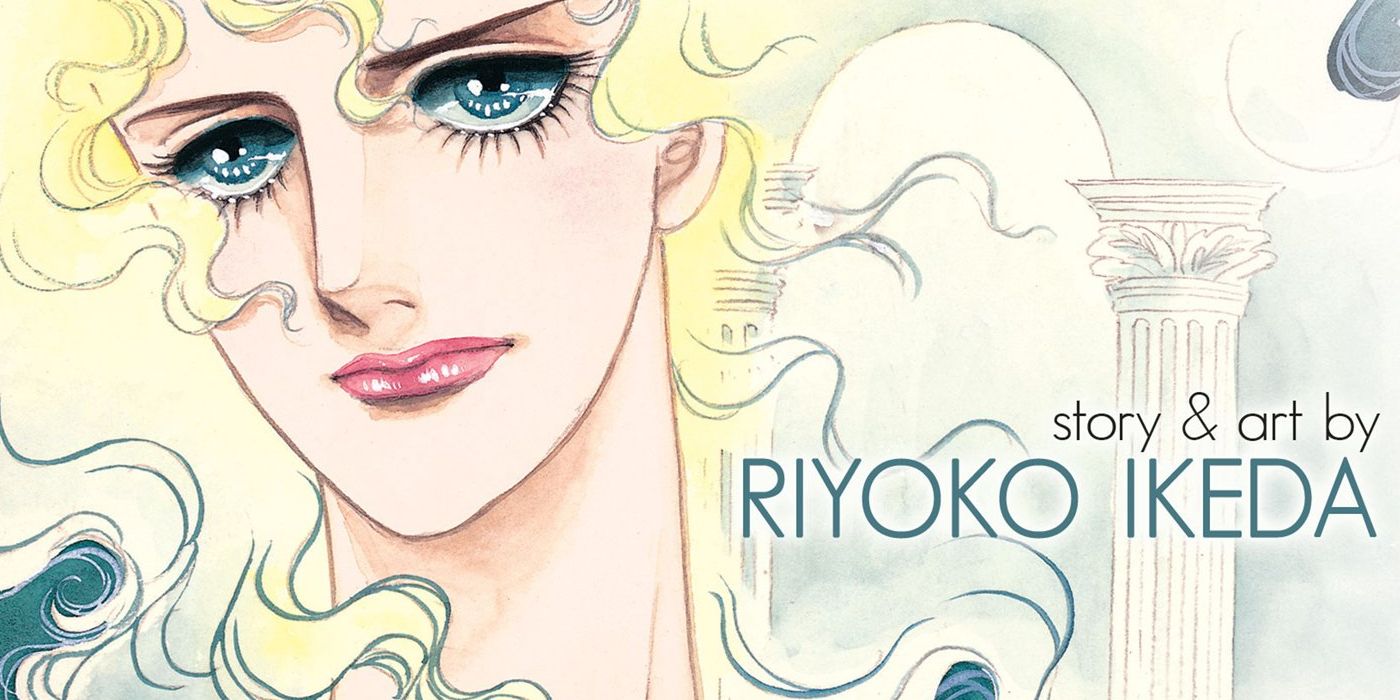
Claudine is a manga past the prolific Riyoko Ikeda, who also published The Rose of Versailles and Beloved Blood brother. The Rose Of Versailles and Dear Brother are also manga that explore LGBTQ themes, with The Rose Of Versaille's Lady Oscar breaking gender roles and Honey Brother being a tragic drama with multiple gay women. Nevertheless, Claudine is revolutionary for featuring one of the first transgender protagonists in manga. The manga follows the protagonist, Claude, as he comes to terms with his gender identity and falls in dear with multiple women throughout his life.
Claudine, unfortunately, is a product of its times. Information technology's non perfect -- information technology ends in tragedy and, well, the title of the manga is Claude's dead proper name. Nevertheless, most of Claude'southward family tends to back up his identity, and the manga doesn't treat Claude's circumstances and demise as an inevitability just rather, a mistake of society. Though it's definitely an uncomfortable read, Claudine is still a part of manga's LGBTQ history. Information technology tin can be read via Seven Seas Amusement.
Our Dreams at Sunset
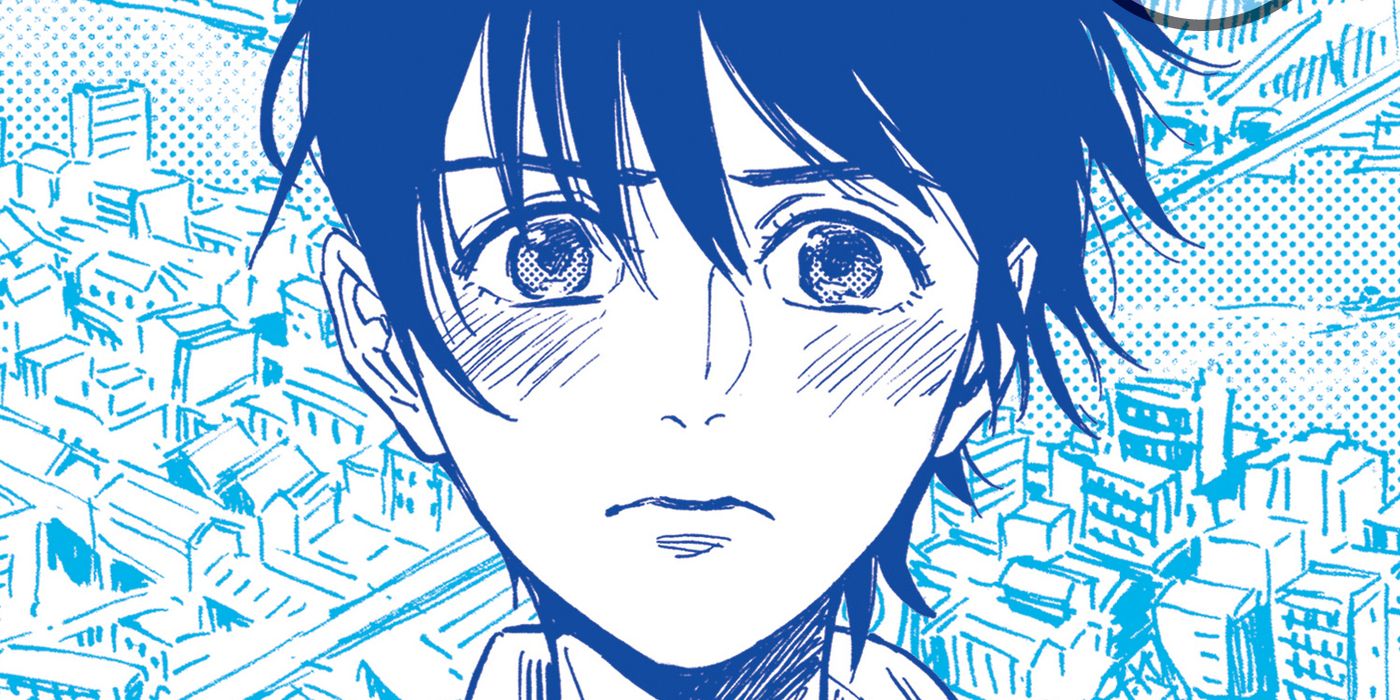
Our Dreams at Dusk was previously mentioned in CBR'due south pride month recommendations, but it's still an extremely of import manga to talk about. The mangaka, Yuhki Kamatani, is openly asexual and Ten-gender. Yuhki Kamatani frequently explores LGBTQ themes (notably with Yoite inNabari no Ou as well equally their other piece of work,Shonen Note), but Our Dreams at Sunset is heavily based on their personal experiences.
The protagonist, Tasuku Kaname, is most to take their own life after being forcibly outed -- until he is "saved" by a adult female who calls herself "Bearding." Anonymous then introduces Tasuku to a community with individuals similar to him, and Tasuku slowly learns to have himself. Simply four volumes long, Our Dreams at Dusk has both cute, metaphorical art and a heartfelt story leaving a lasting bear on -- which is why it's one of the well-nigh recommended LGBTQ manga in the West. Our Dreams at Sunset was brought to the W by Seven Seas Amusement.
Until I Encounter My Husband
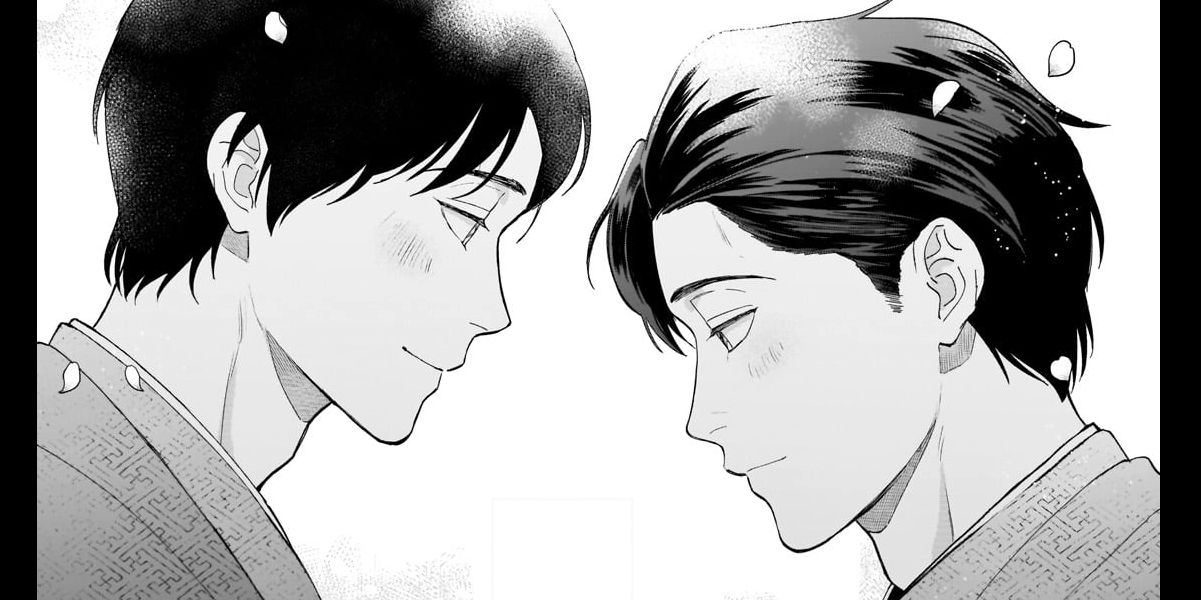
Until I Meet My Husband hasn't been translated into English only yet but it'south admittedly a title to keep on a lookout man for, which is why it'south on this list. Until I Meet My Hubby is a manga illustrated by Yoshio Tsuzuki that focuses on gay activist Ryosuke Nanasaki's life. Nanasaki wrote a variety of essays detailing his experiences with being a gay man, and the manga follows various events that shaped Nanasaki into who he is today.
The untranslated text tin can exist read here for free from the official source, so flip through the pages while you're waiting for an official translation.
Dearest Me For Who I Am
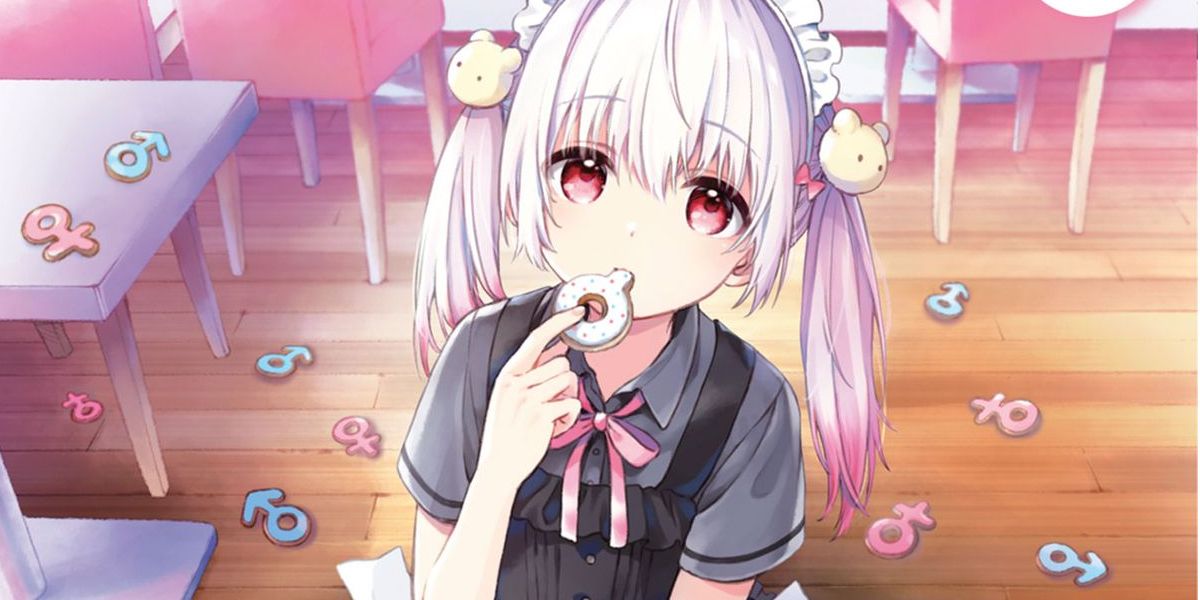
Dear Me For Who I Am'south fine art makes it seem similar a moe manga, but the manga really delves into some serious subjects. Love Me For Who I Am, past Kata Konayama, starts with one of the main characters, Tetsu Iwaoka, inviting his loner classmate Mogumo to work for his family's maid cafe. The maid cafe caters to a specific niche, employing but "girly boys." Even so, Mogumo tells Tetsu that he shouldn't assume someone's gender considering of their presentation. Mogumo is actually nonbinary and causes the cast to reflect on their assumptions almost gender.
Though the manga mostly focuses on Mogumo, other supporting characters are LGBTQ -- including a trans girl, a lesbian and a gay couple. Don't let the cutesy art fool you; Dearest Me For Who I Am does have some humorous and lighter moments but ultimately has a serious storyline with diverse people attempting to empathise what information technology ways to exist nonbinary and confronting their inner prejudices.Love Me For Who I Am is licensed by Seven Seas Entertainment.
Sweet Blue Flowers
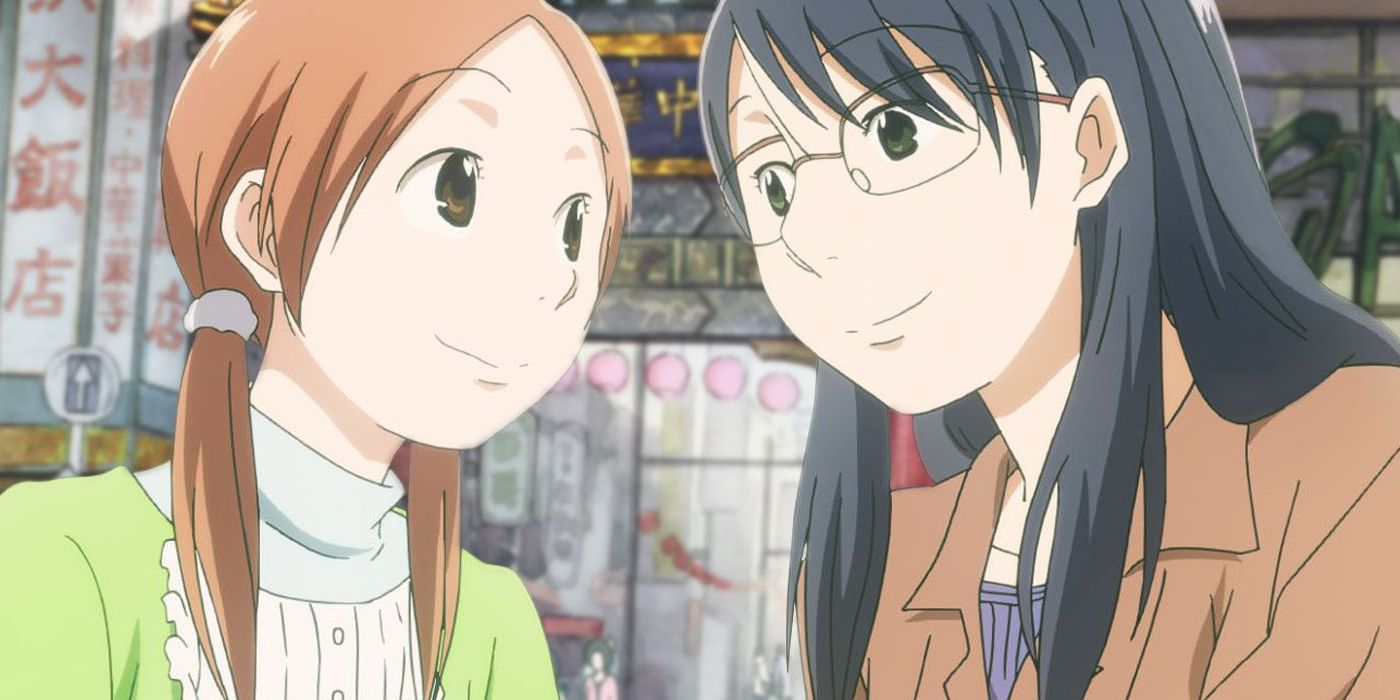
Sweet Blue Flowers is by Takako Shimura, who frequently explores LGBTQ themes in her work. Her most famous work is Wandering Son, just Wandering Son's ending is rather controversial due to the handling of the grapheme Yoshino. Wandering Son is still considered a pop LGBTQ manga nonetheless but Sugariness Blue Flowers is another coming-of-age story that should exist paid attention to.
Sweet Blue Flowers follows two protagonists, Fumi and Akira, who are recently reunited babyhood friends. The two nourish high school and build various relationships, simply Fumi's first love has secretly always been Akira, though she comes out to Akira and dates a senior before Akira finds out. Sweetness Blueish Flowers is a sweetness romance that many will enjoy. It is localized past Viz Media.
Bluish Flag
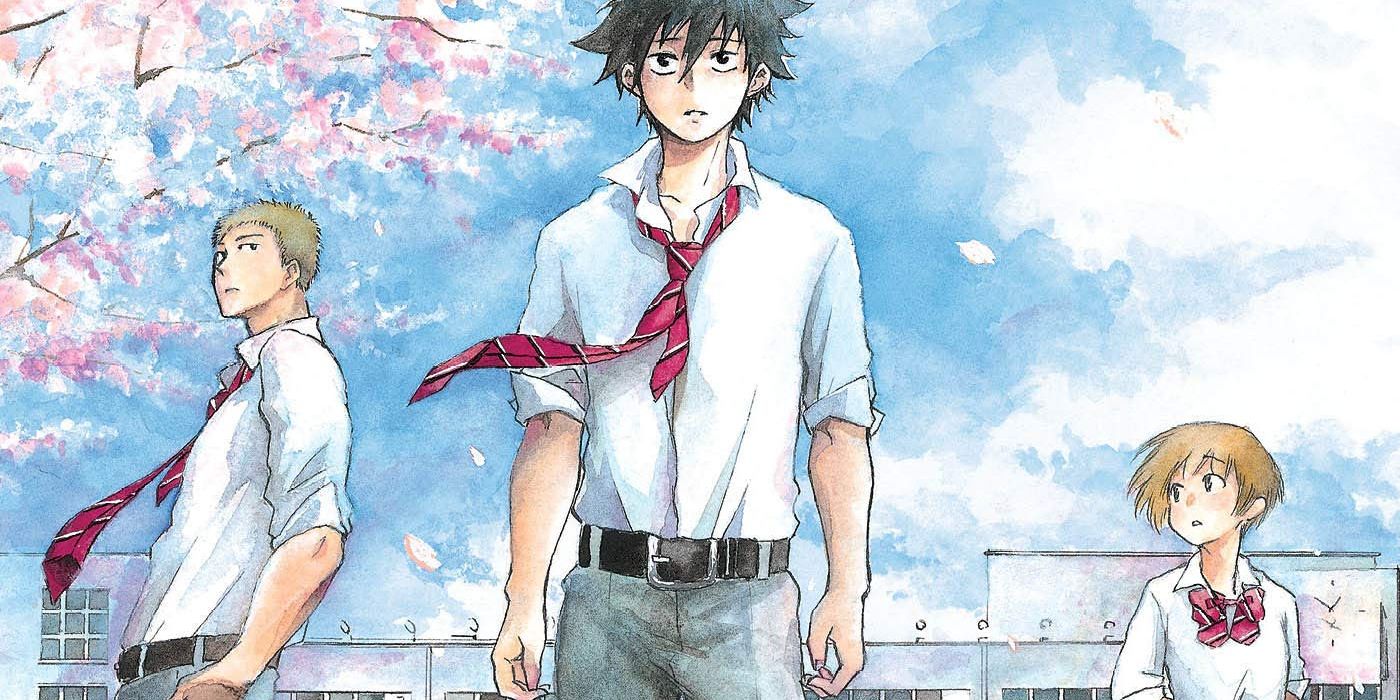
Blue Flag, by mangaka KAITO, seems like a generic dear triangle at first glance. Taichi has ever felt inferior to his pop friend Touma, and thus keeps his altitude every bit they approach their senior year. Then, a tranquillity girl named Futaba admits her love for Touma and asks Taichi for his assistance in winning Touma over. Taichi avoids Futaba at start, but the two before long get closer. Nonetheless, a surprising twist threatens their blossoming romance, and Taichi realizes he definitely doesn't know Touma equally much equally he idea he did.
Ane criticism of Blue Flag is that the manga's determination ends upward feeling rushed, but Blue Flag is nonetheless an extremely important manga. Information technology's an LGBTQ manga that deals with being outed and homophobia -- and was published in Weekly Shonen Bound, one of the biggest, about popular manga magazines, catering mostly to young boys. For such a title non to be marketed as yaoi and brand information technology into the pages of such a major magazine shows the strides that LGBTQ media is slowly making. Some of Blue Flag can exist read onJump's Manga Plus app, while Viz Media is localizing and releasing its printed volumes.
Nearly The Author
Source: https://www.cbr.com/best-lgbtq-manga-not-yaoi-yuri/
Posted by: alemanmility.blogspot.com

0 Response to "Did You Just Assume My Gender Anime Edition"
Post a Comment